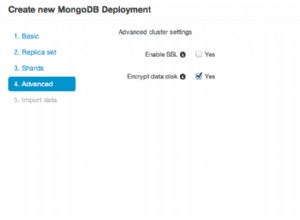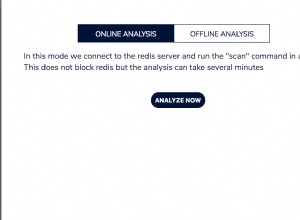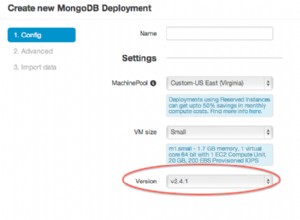Puoi sfruttare l'uso di $arrayToObject
operatore all'interno di una serie di pipeline e un $replaceRoot
pipeline per ottenere il risultato desiderato.
Nota :hubId viene convertito in una stringa durante l'operazione di pipeline come $arrayToObject
l'operatore funziona bene se il valore "chiave" è una stringa. Quindi se hubId è un ObjectId quindi $toString
è necessario quando $arrayToObject
viene applicato.
Dovresti eseguire la seguente pipeline aggregata:
Product.aggregate([
{ "$group": {
"_id": {
"hubId": "$hubId",
"status": "$ProductStatus"
},
"count": { "$sum": 1 }
} },
{ "$group": {
"_id": "$_id.hubId",
"counts": {
"$push": {
"k": "$_id.status",
"v": "$count"
}
}
} },
{ "$group": {
"_id": null,
"counts": {
"$push": {
"k": { "$toString": "$_id" },
"v": "$counts"
}
}
} },
{ "$addFields": {
"counts": {
"$map": {
"input": "$counts",
"in": {
"$mergeObjects": [
"$$this",
{ "v": { "$arrayToObject": "$$this.v" } }
]
}
}
}
} },
{ "$replaceRoot": {
"newRoot": { "$arrayToObject": "$counts" }
} }
])
che produce il seguente documento di risultato:
{
"xyz" : {
"Delivered" : 1,
"On the Way" : 1
},
"mlm" : {
"On the Way" : 1,
"Delivered" : 2
},
"yyy" : {
"On the Way" : 1,
"Delivered" : 1,
"Cancelled" : 1
}
}
Questo ovviamente non produce l'altro stato con conteggio zero, ma la soluzione può essere un buon punto di partenza.




